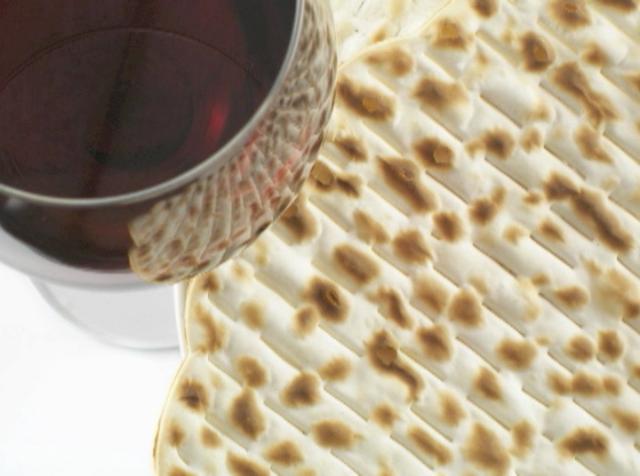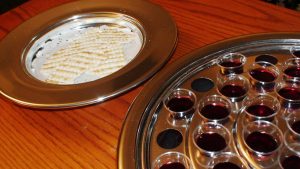I observed in awe as my mother delicately washed each tiny glass cup and placed it to dry on the clean towel beside the kitchen sink. In my little eyes, the washing of the communion glasses seemed as sacred as the partaking. I could hardly wait until I was old enough to partake – “old enough to understand,” my mother and daddy said. So in reverence, I watched the washing of the tiny glass cups and the silver servers in which they were later placed. I observed her carefully pour the grape juice into each cup, break the unsalted crackers to a smaller silver plate, and place spotless white starched linen cloths over each. It was the first Sunday of the month: Communion Sunday at our small country church.
“This do in remembrance of me” the Pastor said, quoting from the King James Version.
In my early years, I learned more about this sacrament, in which I partook, and later, I became more discerning of His body, realizing more about honoring and recognizing His body, as well as His blood.
“For whenever you eat this break and drink this cup, you proclaim the Lord’s death until he comes,” He said.
Proclaiming means “openly declaring.”
I partake not to be forgiven but to “declare” that I am forgiven!
I partake, not to be healed but to “declare” that I am healed!
There is power in declaration! I am proclaiming to the powers of darkness that the Lord’s death has shaken loose everything they are trying to put on me. Jesus died for me (the past); I am proclaiming His death (the present) “until he comes” (the future). We learn in 1 Samuel 7:9 that the burnt offering of the lamb was like a sweet aroma to God. I suspect that communion, too, is a sweet aroma to God, as we remember the burnt offering of the Lamb of God, the Lord Jesus.
My husband Ron and I often take communion at home, sometimes sitting in the midst of God’s peaceful natural creation of trees and birds and breeze on our back porch or sometimes facing the powerful surroundings of God’s creation at the beach. I select special small vintage glasses for our tiny portions of wine, and I place matza unleavened flatbread on a small plate or platter, one that is memorable or has special significance to us. The matza bread, like the crackers used in the church of my childhood, are pierced and striped as Jesus’ body was. The burn marks on the bread (or crackers) represent the full fire of God’s wrath which fell upon Jesus and are a reminder of the burnt offering – the Lamb, the Lord Jesus. Of course, the wine, which He tells us to drink in remembrance of Him, is the new covenant in His blood. This reminds us that without the shedding of blood, there is no forgiveness. Ron and I always read from Isaiah 53, from the Psalms, from Luke 22, or from 1 Corinthians 11. We praise the Father and we thank Him. We partake.
The Holy Communion (the Lord’s Supper)
is not about you or me;
it is about Jesus.
Although it is blessed to partake in Communion with the body of believers, you can partake outside the church, as well – with your spouse, with your friend, or by yourself. It is your time of remembrance – of Him.
May God bless you as you partake in Holy Communion. You don’t need to wait until Sunday!
Further Reading: 1 Cor. 11:23-29; Samuel 7:9; Isaiah 53:4-6; Hebrews 9:22



Your writing is such a blessing to me.
Thank you, Robbie. Your words of encouragement are a blessing to me!
Love this!
Was a reminder to me, as well.